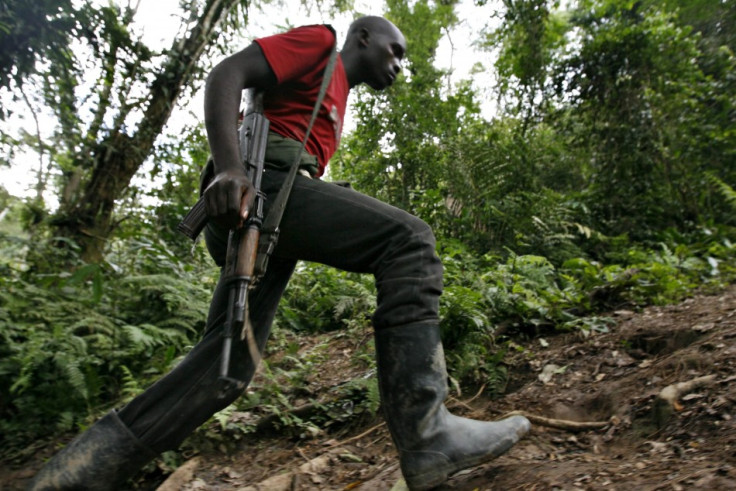DRC: Citizens begin stay-at-home protest over FDLR violence on civilians

Citizens in several towns in the eastern Democratic Republic of Congo (DR Congo) have declared a stay-at-home protest over violence committed by militant groups against civilians. It is believed that people declared a three-day shutdown after one woman and two men were allegedly stabbed by members of the Democratic Forces for the Liberation of Rwanda (FDLR) in the restive North Kivu Province.
Georges Kasongo, head of an NGO in the territory of Lubero town, told AFP that the protest was launched to urge the government to restore peace and security in the area. The three civilians are currently being treated and are believed to be in a serious condition.
Kasong added that the protest which started on Monday ( 26 October) had so far been a success as businesses, offices and schools remained closed.
FDLR, which was formed in Congo after Hutu extremists fled Rwanda in the aftermath of the 1994 genocide, is often accused of committing crimes against civilians in Congo. Earlier in August, the group was blamed for the abduction of six Tanzanian imams between the villages of Katwiguru and Rutshuru.
The kidnappers asked for a $40,000 (£25,6090) ransom to release the hostages who managed to flee while the abductors clashed with the Congolese army.
Who are the FDLR militants?
Members of the FDLR militant group, mainly composed of Hutus, include some Interahamwe, which translates from Kinyarwanda as "those who stand together". The Interahamwe is a Hutu paramilitary organisation, which was behind the Rwanda genocide, in which more than 800,000 people – mainly Tutsis and moderate Hutus – were killed by Hutu extremists in 1994. During the massacres, the Interahamwe received large support from the Congolese government of Joseph Kabila.
Following the end of the genocide, Hutu extremists fled to Congo where they formed the FDLR in 2000. The group was used by Kabila to fight the Rwandan Patriotic Army and other foreign troops in the country during the Second Congo War, which erupted in 1998 . Following the end of what has been dubbed the deadliest conflict in Africa in 2003, FDLR continued to carry out attacks against Tutsis in Congo and along the border with Rwanda. The group is allegedly responsible for several terror attacks that killed dozens of people in eastern Congo.
© Copyright IBTimes 2025. All rights reserved.






















